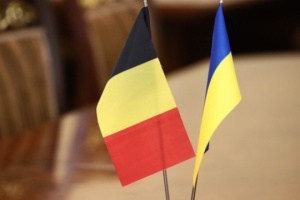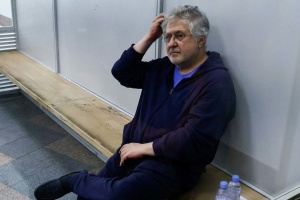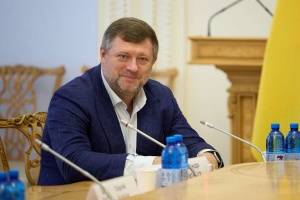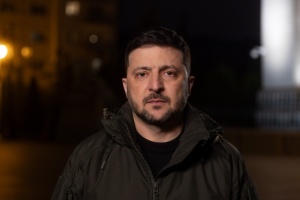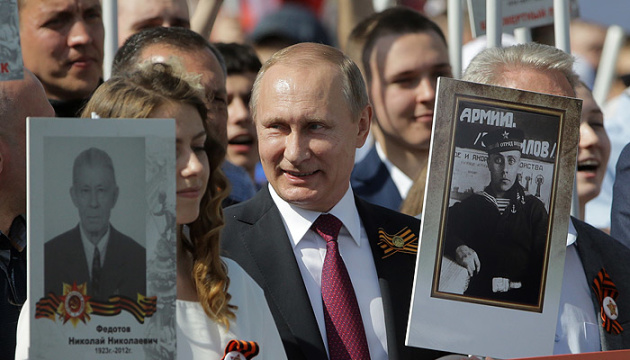
How the "immortal regiment" was defeated by Russian fascism
Also, unlike last year, Putin's regime no longer includes killed members of the so-called "SVO" ("Special Military Operation") in the "Immortal Regiment." At least the announcements do not emphasize this. The Center for Strategic Communications analyzes why the march was canceled and why the memorial "regiment" did not protect Russia itself from racism.
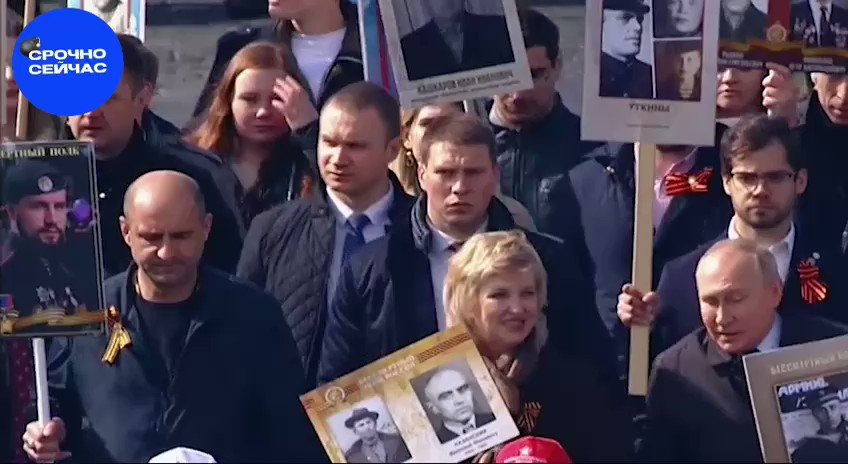
The cancellation of the demonstrations long before the drone footage over the Kremlin appeared raised the question among Russians: why did they refuse to hold a march with photos? Despite the state's obligation and profanation with paid participants, this action still enjoyed support in Russia. The memory of a relative, most often a participant in the Great Patriotic War, which is part of family stories, evoked special emotions during the mass action, and this somewhat humanized the clichéd propaganda of the victory.
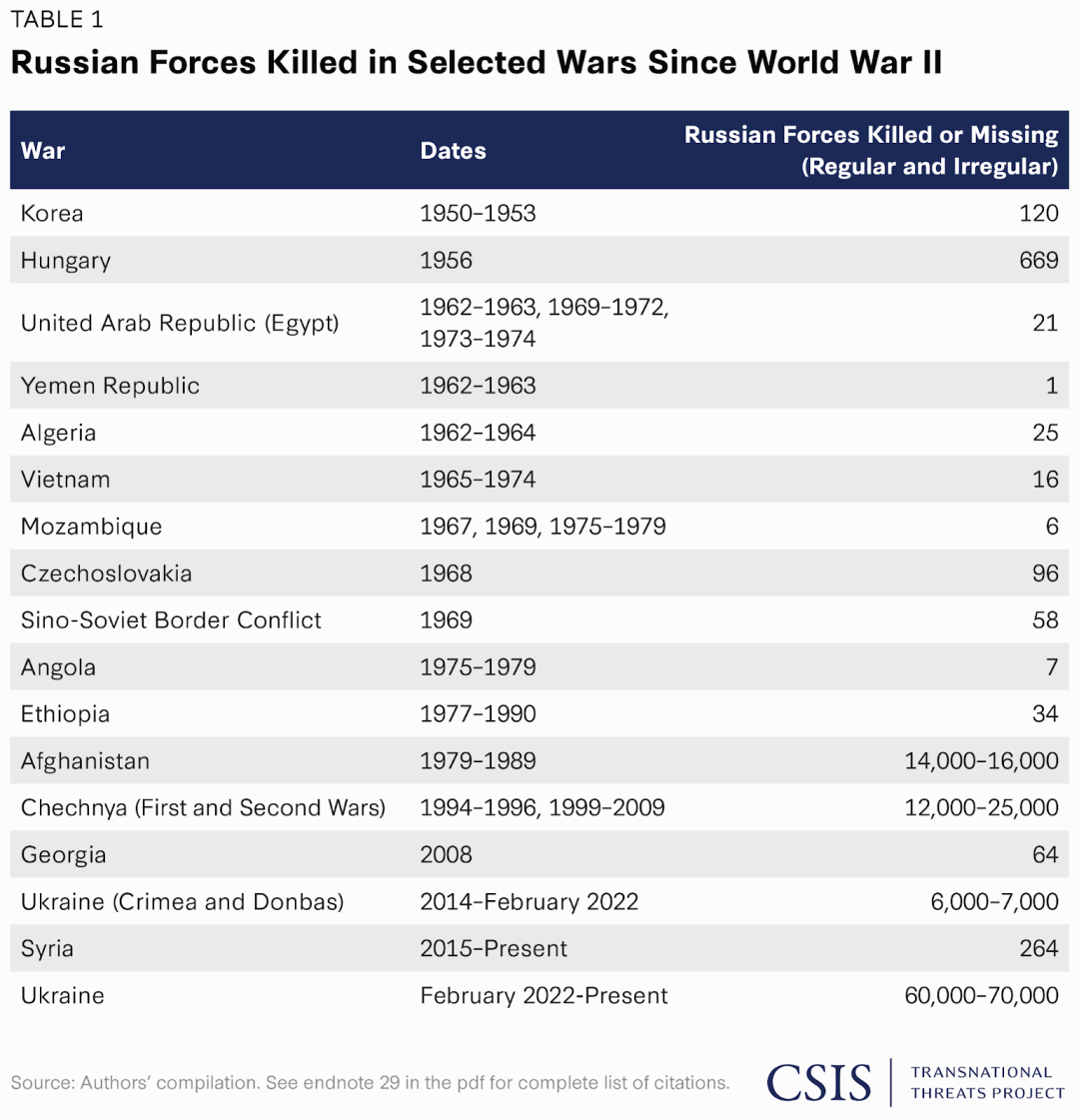
The action of the Immortal Regiment has been gaining momentum since Russia attacked Ukraine in 2014. The propaganda resource kp.ru reports that in 2013, the action was held in 120 Russian cities, in 2014 - in 500, and in 2015 - in 1150.
Last year, despite the failure of the plan to quickly seize Ukraine, the demonstration took place. In the center of Moscow, there were as many Russian flags as there were red flags of the USSR, which in the spring of 2022 were used by the Russians as an element of propaganda in the war with Ukraine.
At the rally, Artem Zhoga, a militant from the so-called "DPR," [Part of Donetsk regions of Ukraine, temporarily occupied by Russia] was walking next to Putin. He was carrying a photo of his son Volodymyr, who was killed on March 5 near Volnovakha during the full-scale invasion of Ukraine. Russian media quoted the militant as saying that he was very pleased to meet Putin during the award ceremony. In this way, propaganda symbolically equated World War II veterans with Russian invaders in Ukraine, and its aggression with the war against Nazism.
After this year's march was canceled, British intelligence suggested that the Kremlin wanted to avoid publicizing its losses in the current war. According to CSIS analysts, the Kremlin has lost more lives in this war than in all its wars since World War II combined.
Indeed, it is possible that in some Russian cities that suffered the greatest losses, a mass gathering of people with portraits would have given rise to conclusions dangerous to the Putin regime.
Oleksii Kopytko, an advisor to Ukraine's defense minister, cites statistics on the dead Russians whose names have been identified: "Professional units from these [western Russian] regions were defeated and cannot recover. Losses from Tula, Kostroma, Ryazan, Kaliningrad, Pskov practically froze at around 150-200 people. These are the public losses of airborne troops and marines that our troops suffered in the first half of 2022. As a result, these cities experienced a local shock, from which they have not yet recovered. It was not for nothing that the Russian authorities banned the Immortal Regiment event. ...Things can come out that cannot be hidden later."
At the demonstration, participants with photos of their relatives killed in the "SVO" could share with journalists details that the regime would prefer to keep secret.
Another reason for canceling the demonstration could be that the Kremlin fears that fewer people will come to the rally across Russia than last year. Such a clear decline in patriotic activity, which could have been influenced by a year of war and the announcement of mobilization, would be an indicator that support for the war among the masses is beginning to wane. They would also have had to resort to simulating rallies in the newly occupied territories, where it would have been unlikely to gather enough Ukrainians for a propaganda picture.
The Kremlin could also have been afraid of possible anti-war protests during the march, which would have become a media pretext and drawn attention to the fact that Russia has accumulated dissatisfaction with the war.
So, in the end, the regime proposed to hold an action in the format of displaying a photo of a Great Patriotic War veteran on a car window. The organizers also offer other activities: memory walls with photos of relatives on the Internet, badges and online flash mobs with them.
The Russians, who were already accustomed to the event, were left with an uneasy feeling and disappointment because of its cancellation. The media justified this by the "terrorist threat" from Ukraine and the need to show solidarity with Crimea, where the event was canceled due to the proximity of the frontline. However, according to one of the websites involved in the action, not all of the organizers themselves understand why they canceled it: "Fellow soldiers. We receive a lot of letters with one question: why will there be no march of the Immortal Regiment? We cannot give the exact reasons for this decision, especially since we have nothing to do with it."
Instead, racism continues to lead its cynical "round dances" around the world. They are trying to make the "Immortal Regiment" a kind of international action that would take place in different countries to promote the racist agenda. For example, at the end of 2022, a forum for rally organizers was held, attended by 200 people from 35 countries.
On May 2, the rally was held in the Democratic Republic of the Congo, where, in addition to the march, local musicians performed "Katyusha".
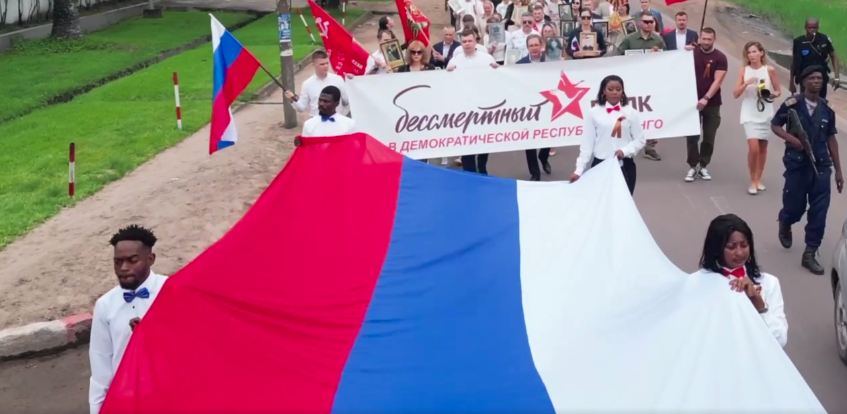
This year, the campaign is also taking place in two cities in Venezuela: Caracas on May 6 and Barquisimeto on May 9.
Victory over "victory"
For Russians, Victory Day has turned into a destructive cult that the regime has been able to use to fuel an aggressive war. Positive emotions of people - patriotism, memory of ancestors - were turned into propaganda fuel for Ukrainophobia. Some say it more simply: "veterans would spit in the face of those who started this war."
Much has already been said about how Russians were fascized by the regime, unbeknownst to them, through imperialism, the cult of the leader, the staples, the cult of death, belief in a global conspiracy, and the cultivation of revanchism.
Propaganda created a fantasy out of World War II, in which the forces of good overcame the forces of evil. And the mystical thinking of Russians joined this game. This is how Putinism found a source from which it could draw militaristic energy: we are the winners, we have paid a heavy price, and therefore we have the right to do what we want. Like any narcotic stupor, this one cannot last forever.
At the level of the Russian elites, there is already fatigue and an unspoken realization that the aggressor this time is Russia itself. The myth of the Soviet warrior-liberator is being replaced by the image of a Russian occupier who is destroying peaceful life. The Kremlin's further prolongation of the war is nothing more than an attempt by the regime to escape responsibility for its crimes at the cost of human lives, hiding behind existential rhetoric.
Consistently conveying to the masses of Russians that they themselves have turned into fascists and Nazis who deny and enslave the Ukrainian people may make them look at the war from a different perspective. It will also dispel the smokescreen of propaganda that labels Ukrainians as fascists.
Propaganda itself is beginning to give rise to the conclusion that Russia cannot win this war. This is evidenced by the disappearance of normalcy in the Russian rear, such as the cancellation of the Immortal Regiment march, mobilization, widespread trench digging, and air raids. Putin's authoritarian regime has broken a basic bargain with Russian society: passivity in exchange for the government's patronage. As before, Putinism demands obedience from Russians, but no longer gives them any guarantees or confidence in the future. Increasingly, Russians will feel betrayed and deceived.
Victory is achieved not only on the battlefield. Its psychological perception is no less important. And the propaganda front is cracking in Russia just as much as the field front.
Center for Strategic Communications and Information Security

